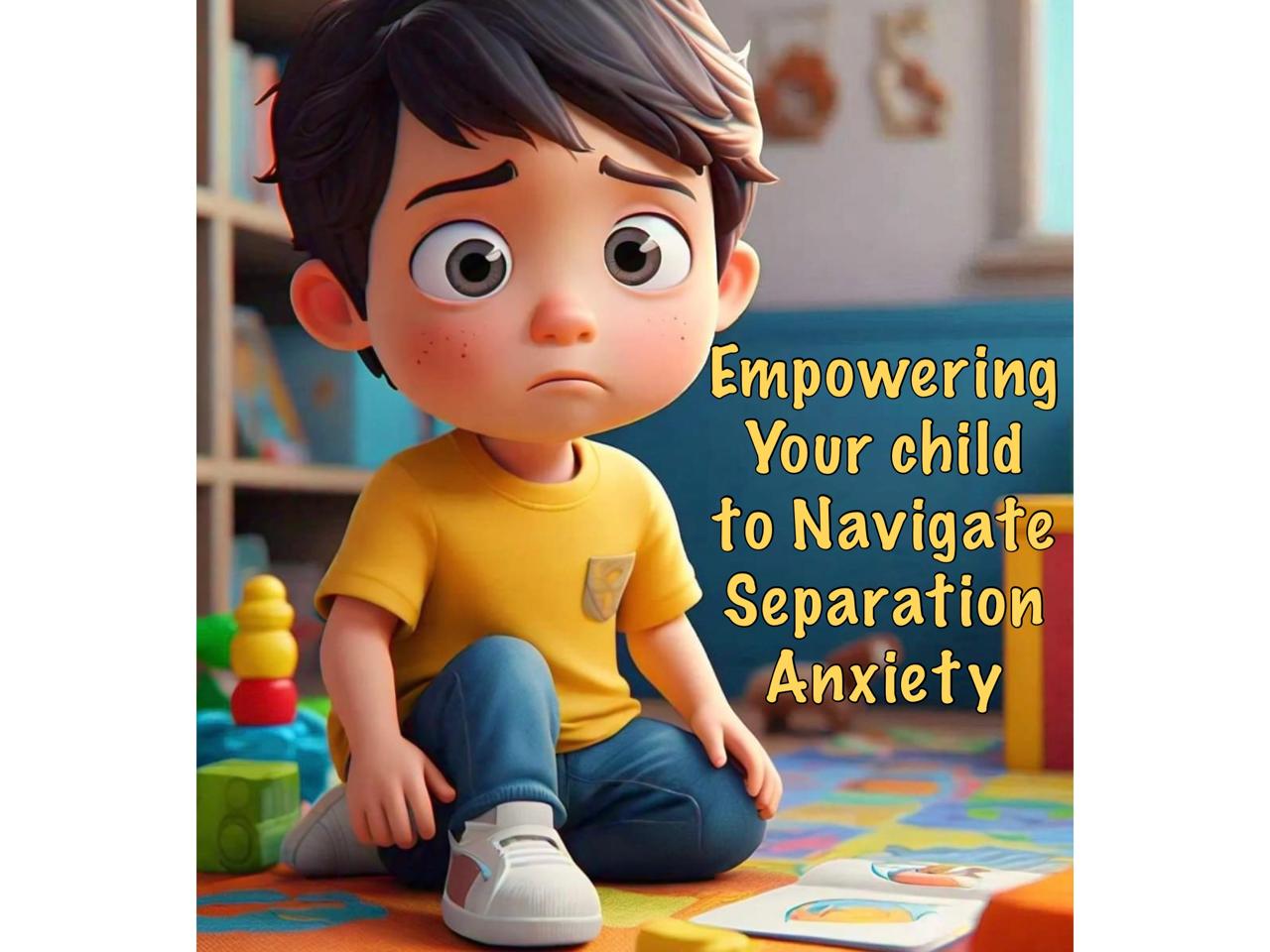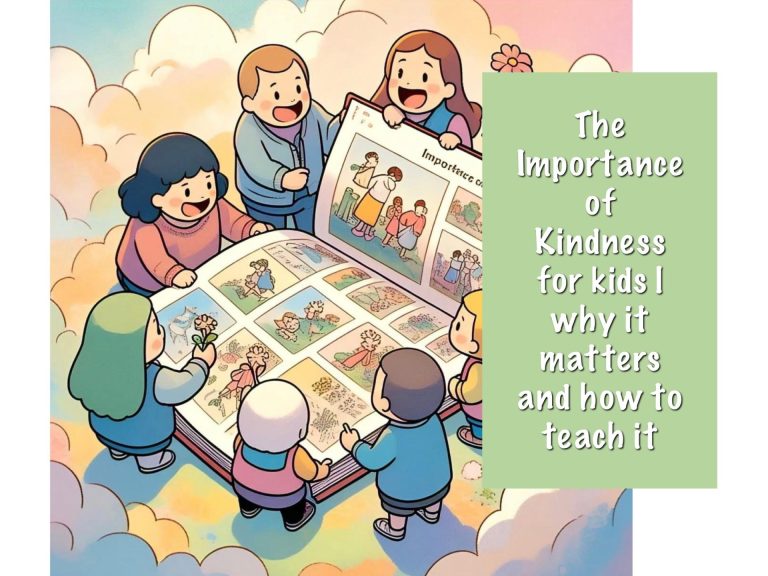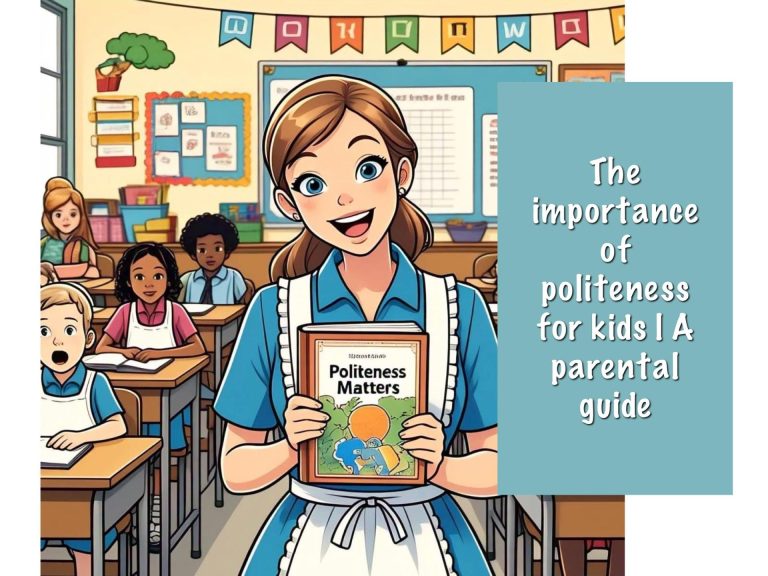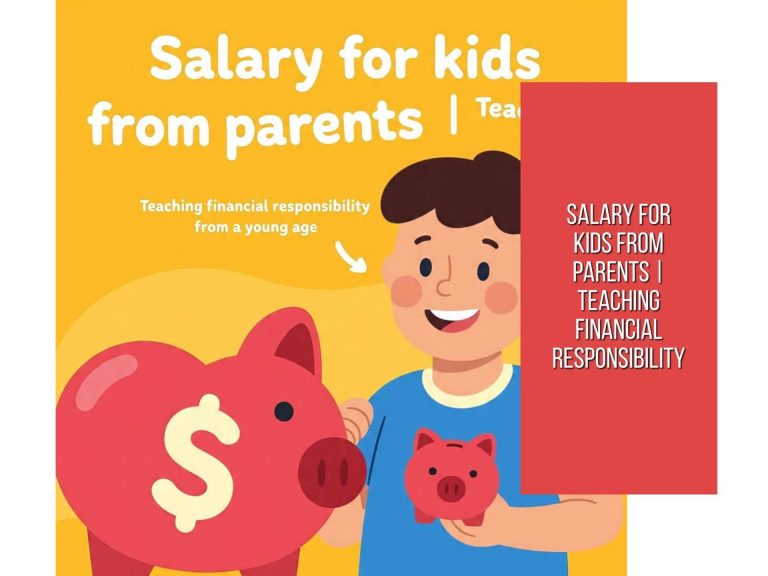Empowering Your Child to Navigate Separation Anxiety | A Guide For Parents
Separation anxiety is a common challenge for many children, especially when they start attending school or daycare for the first time. It’s perfectly normal for kids to feel anxious when they’re away from their parents or caregivers. However, as a parent, you can play a significant role in helping your child overcome this anxiety and become more confident and independent.
Understanding Separation Anxiety
Separation anxiety usually begins around 8 to 12 months of age and can continue into early childhood. It happens because children naturally form strong attachments to their parents and feel safe when they’re close to them. When separated, they may feel scared or uncertain, leading to crying, clinginess, and even tantrums.
Signs of Separation Anxiety
Children express separation anxiety in different ways. Here are some common signs:
- Crying or tantrums when you leave the room or drop them off somewhere.
- Clinginess, refusing to be separated from you.
- Nightmares or trouble sleeping alone.
- Physical symptoms like headaches or stomachaches, especially before separation.
How to Empower Your Child
While separation anxiety can be challenging, there are several strategies you can use to help your child navigate this phase confidently:
1. Start with Short Separations
Begin by leaving your child with a trusted adult for short periods. Gradually increase the length of time as they become more comfortable.
2. Create a Goodbye Ritual
Having a consistent and positive goodbye routine can help ease anxiety. For example, a special hug, a kiss, or a fun handshake can provide comfort and make the transition smoother.
3. Practice Patience and Empathy
Acknowledge your child’s feelings and reassure them that it’s okay to feel sad or scared. Let them know that you’ll always come back.
4. Introduce Familiar Items
Allow your child to take a favorite toy or blanket with them. Familiar objects can provide comfort and help them feel secure.
5. Encourage Independence
Gradually encourage your child to play or spend time with others without your constant presence. This helps them build confidence in their ability to handle being apart from you.
6. Stay Calm and Positive
Children can sense your emotions. If you’re calm and confident, they’re more likely to feel the same way. Avoid making a big fuss during goodbyes.
7. Read Books About Separation
Books can be a great way to help your child understand and cope with their feelings. Choose stories that focus on separation in a positive light and show how characters handle it successfully.
When to Seek Help
If your child’s separation anxiety is severe and doesn’t improve over time, it might be helpful to consult a child psychologist or counselor. They can provide additional support and strategies to help your child manage their anxiety.
FAQs
Q: At what age is separation anxiety most common?
A: Separation anxiety typically starts around 8 to 12 months and can last until early childhood. However, every child is different, and the intensity and duration can vary.
Q: How can I tell if my child’s separation anxiety is more serious?
A: If your child’s anxiety is preventing them from participating in normal activities, causing significant distress, or continuing for an extended period, it may be time to seek professional help.
Q: Can separation anxiety affect older children?
A: Yes, while it’s more common in younger children, older kids and even teenagers can experience separation anxiety, especially during major life changes.
Q: Are there any activities that can help reduce separation anxiety?
A: Yes, activities that build your child’s confidence, like role-playing, socializing with peers, and practicing short separations, can help reduce anxiety over time.
Q: What if my child’s separation anxiety worsens when starting school?
A: It’s normal for separation anxiety to resurface during major transitions like starting school. Use the strategies mentioned above, maintain open communication with your child’s teacher, and give your child time to adjust.
Conclusion
Empowering your child to navigate separation anxiety is about providing them with the tools and support they need to feel secure, even when you’re not around. With patience, understanding, and consistency, you can help your child overcome their fears and grow into a more confident and independent individual. We aim to be the best Online learning for kids website, Visit us more often for more such amazing guides.








